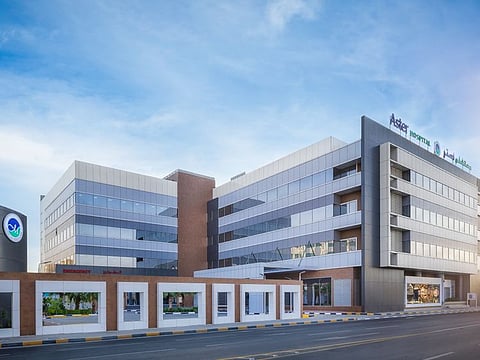Aster Hospitals and Clinics: Your destination for diabetes care
A multidisciplinary team offers holistic support for diabetic patients

Diabetes is a silent killer, which affects millions of people across the world. The number of people diagnosed with diabetes is soaring year by year. It is no longer a condition that affects you in your middle age. In a fast-paced, modern world, more youngsters are struggling with diabetes.
In simple terms, diabetes is a condition caused by the presence of excess sugar in the blood. People must manage it as it can lead to serious health problems.
Different types
The behaviour of diabetes in the human body depends on its type. The chronic conditions of diabetes are type 1 and type 2. Possibly reversible diabetes is prediabetes and gestational diabetes. Prediabetes is a condition where the blood sugar levels are higher than normal, but it is not high enough to be called diabetes.
Gestational diabetes happens during pregnancy but may go after the baby is born.
“Type 1 diabetes is a serious condition where your blood glucose levels are too high because your body cannot make insulin,” explains Dr Darvin V. Das, Specialist Endocrinology and Diabetology at Aster Hospital, Mankhool. “In type 1 diabetes, your body attacks cells in your pancreas that make insulin affecting its production. However, in type 2 diabetes, the pancreas produces insulin, but it does not efficiently work to control the blood sugar levels.”
Type 2 diabetes is the most commonly prevalent diabetes in the world. It poses a serious threat to other body parts if left untreated for a long time. Dr Kingini Bhadran, Specialist Endocrinology at Aster Hospital, Qusais, says untreated type 2 diabetes can damage organs such as heart, eyes, feet and kidneys. “Damage of these organs is the long-term complication of diabetes. But we can prevent many of these long-term problems by getting the right treatment and care. It would also help the patients to manage blood sugar levels within control.”
What to watch out for
Type 1 and type 2 diabetes can start at any age. The former is commonly seen to start during childhood or early teenage years. Type 2 diabetes is more prevalent in the middle aged population. Some of the common symptoms manifested by type 1 and type 2 diabetes are: feeling more thirsty than usual; frequent urination; loss of weight; the presence of ketones in urine; feeling tired and weak; blurry vision; and slow healing of sores.
Dr Velmurugan Mannar, Specialist Endocrinology at Aster Clinic, Dubai Silicon Oasis, advises people who have these symptoms to consult a doctor and check for blood sugar levels. “Generally, people ignore symptoms and only realise they have diabetes when they experience a severe sign. In the UAE, due to the sedentary lifestyle, most of the population is prone to diabetes. So, it is critical that they undergo a regular check-up at least once a year.
“It is equally important that we manage diabetes once diagnosed. Some people do not take medicines properly, while others avoid medicines after some time. It leads to long-term complications due to mismanagement.”
What puts you at risk?
Family history plays a major role in developing diabetes. Family members of people with type 1 diabetes must test for the presence of diabetes immune system cells. If the test confirms its presence, you have an increased risk of developing type 1 diabetes. Prediabetes, type 2 diabetes and gestational diabetes are more common in people who are overweight or obese.
How to prevent it?
Dr Maneesha Pandey, Specialist Endocrinology at Aster Clinic, Bur Dubai, says type 1 diabetes can’t be prevented. But healthy lifestyle choices will help us in preventing prediabetes, type 2 diabetes and gestational diabetes. “Food choices play a crucial role in preventing diabetes. It is ideal to choose foods lower in fat and calories and higher in fibre. Eat more fruits, vegetables and whole grains. Engaging in physical activity for about 30 minutes five days a week reduces the risk of developing diabetes. If you’re overweight, losing even 7 per cent of your body weight can lower the risk of diabetes.”
Diabetes management at Aster
Aster Hospitals and Clinics provide a full range of services for adult and paediatric patients with endocrine and metabolic diseases including diabetes.
The multidisciplinary team at Aster encompassing endocrinologists, internal medicine specialists and specialists from super specialties successfully integrates their medical expertise to evaluate and treat patients with diabetes.
Its team of specialists offers specialised clinical services to patients with multiple comorbidities. These include a combined diabetes-antenatal clinic, diabetes nephrology clinic, and insulin pump clinic.
The facilities under Aster possess all the resources to treat and manage diabetes and the long-term complications caused by it.
To book an appointment with Aster Hospitals and Clinics call 04 4400 500
Sign up for the Daily Briefing
Get the latest news and updates straight to your inbox



